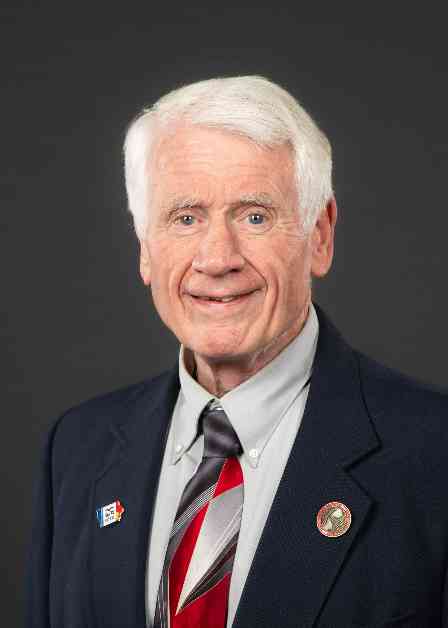Iowa Schools Required to Include Denali and Gulf of America in Curriculum
In a recent development, Republicans on a House subcommittee have given their approval to a bill mandating that any educational materials distributed in Iowa classrooms adhere to President Trump’s executive order renaming two significant landmarks. Specifically, in January, Trump officially renamed Mount Denali to Mount McKinley and the Gulf of Mexico to the Gulf of America.
Representative Bob Henderson, a retired math teacher and Republican from Sioux City, emphasized the importance of this bill. He clarified that the legislation does not necessitate the purchase of new textbooks or wall maps reflecting these name changes. However, it does apply to any materials distributed in classrooms, including tests.
With the Department of Interior having officially changed the name of Mount Denali back to Mount McKinley as of January 24, Henderson explained the rationale behind this decision. He also expressed his belief that the Gulf of America is a more fitting name for the region, despite it being known as the Gulf of Mexico for nearly two centuries.
While the timeline for when the Gulf of America will be officially recognized in federal records remains uncertain, the president’s executive order has given the Department of Interior 30 days to update the official federal database of all U.S. geographic names with these changes.
During a subcommittee hearing on the bill, Heaven Chamberlain of Bondurant voiced her opposition, deeming the proposed changes as unnecessary. She argued that the Gulf of Mexico is a well-established name that does not need to be altered to the Gulf of America.
Representative Mary Lee Madison of Des Moines, the lone Democrat on the subcommittee, voted against the bill and raised concerns about the frequent name changes that Trump has initiated. She emphasized the importance of maintaining consistency and stability in the naming of landmarks.
Controversy and Opposition
The bill, sponsored by the chairman of the Education Committee in the Iowa House, has sparked debate and controversy among lawmakers and residents alike. While some argue in favor of the name changes as a reflection of national identity and pride, others view them as unnecessary and politically motivated.
Critics, like Representative Madison and Chamberlain, question the need for altering longstanding names that have historical significance and cultural relevance. They highlight the importance of preserving tradition and respecting the heritage associated with these landmarks.
Expert opinion from geographers and historians can provide valuable insights into the implications of renaming geographical features and the impact it may have on public perception and educational curricula. By examining past instances of renaming landmarks and the reasons behind such decisions, a more nuanced understanding of the current debate can be gained.
Historical Context and Future Implications
The renaming of Mount Denali and the Gulf of Mexico to Mount McKinley and the Gulf of America, respectively, is part of a broader trend of revisiting and revising geographical names to align with political agendas and national narratives. This practice raises questions about the power dynamics involved in naming and renaming landmarks and the significance of these changes in shaping collective memory and identity.
As the bill moves through the legislative process, it will be essential to consider the broader implications of these name changes on educational materials, historical accuracy, and cultural heritage. Engaging in open dialogue and consultation with stakeholders, including educators, historians, and Indigenous communities, can help ensure a more inclusive and informed decision-making process.
In conclusion, the debate surrounding the renaming of Mount Denali and the Gulf of Mexico highlights the complexities of identity, heritage, and politics in shaping geographical nomenclature. By exploring the diverse perspectives and historical dimensions of this issue, we can gain a deeper appreciation for the significance of place names and their role in shaping our understanding of the world around us.









